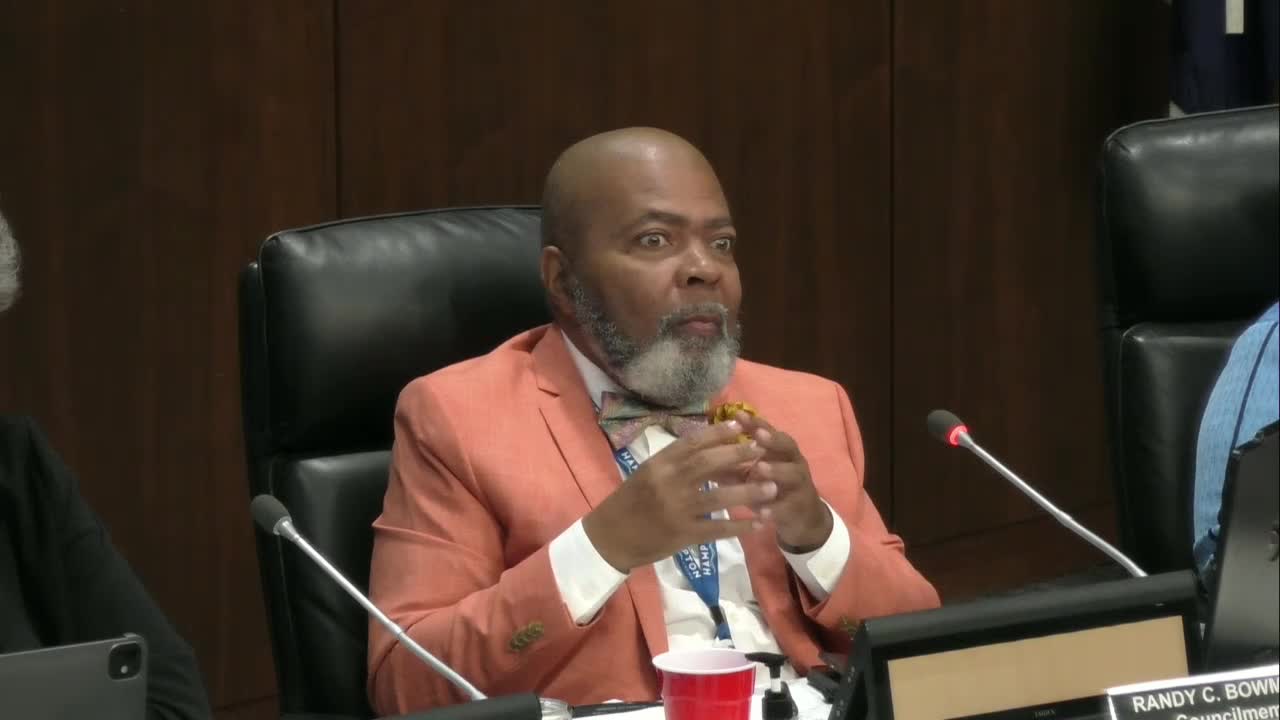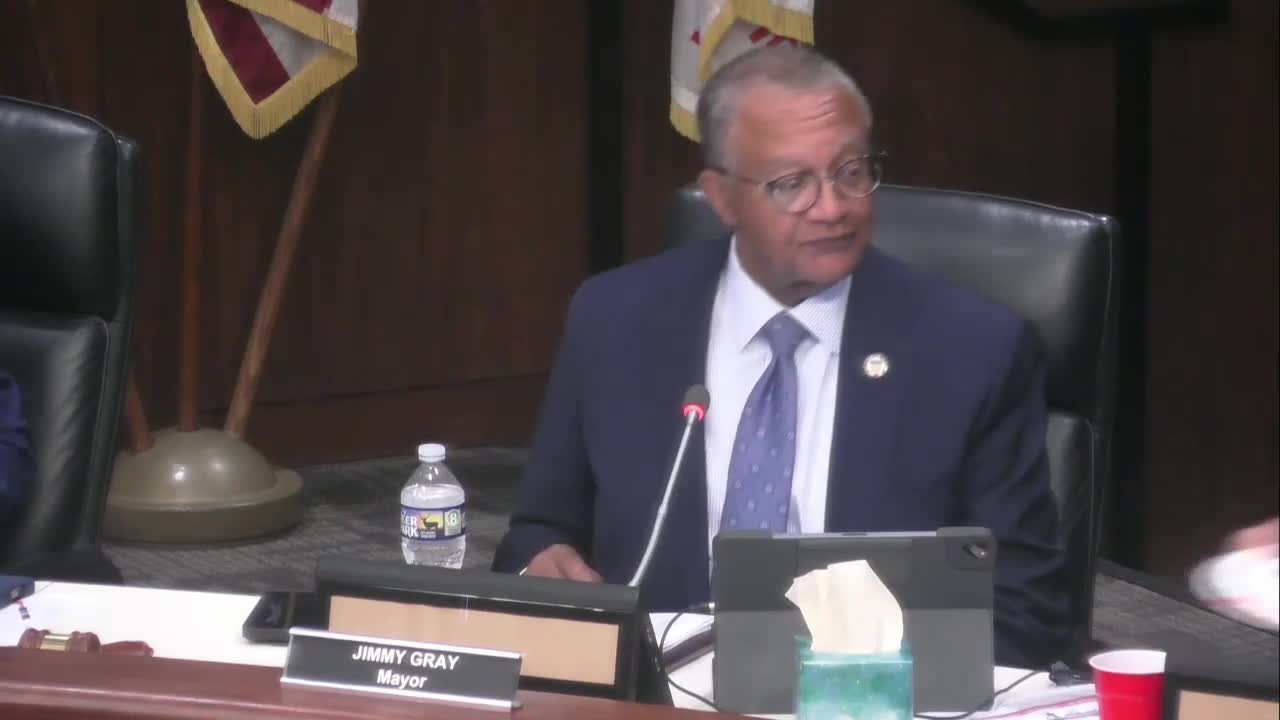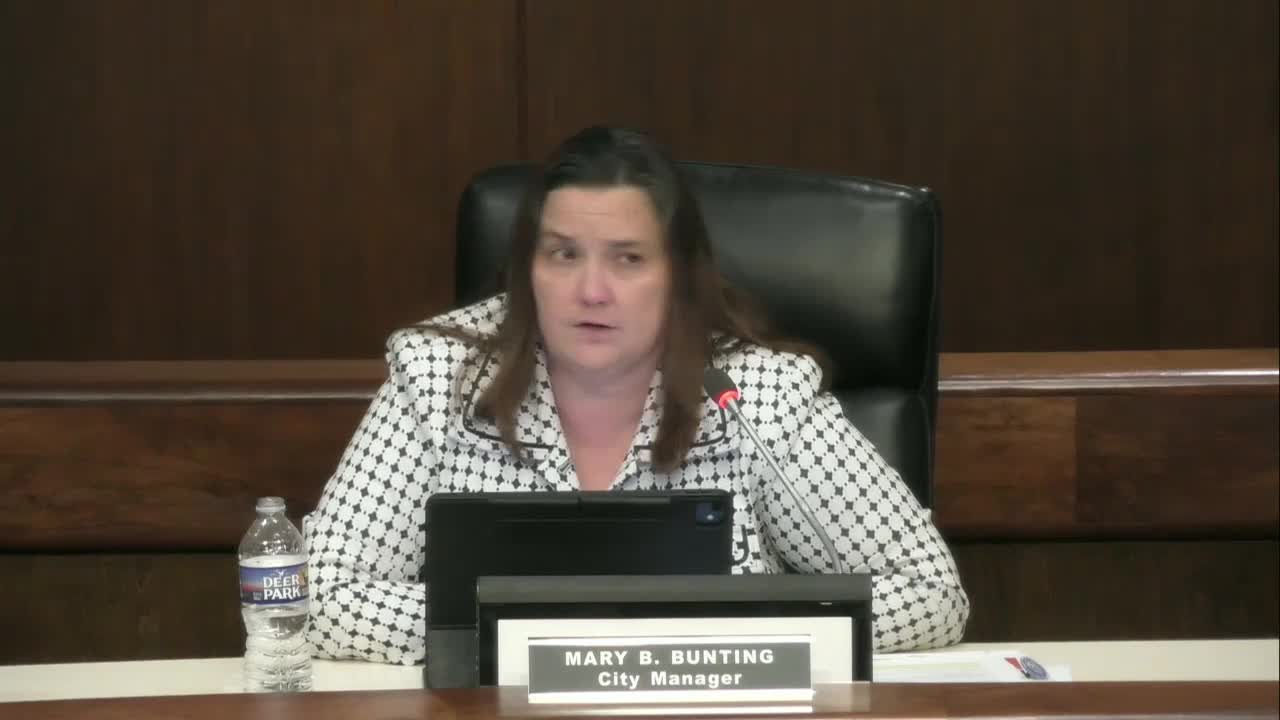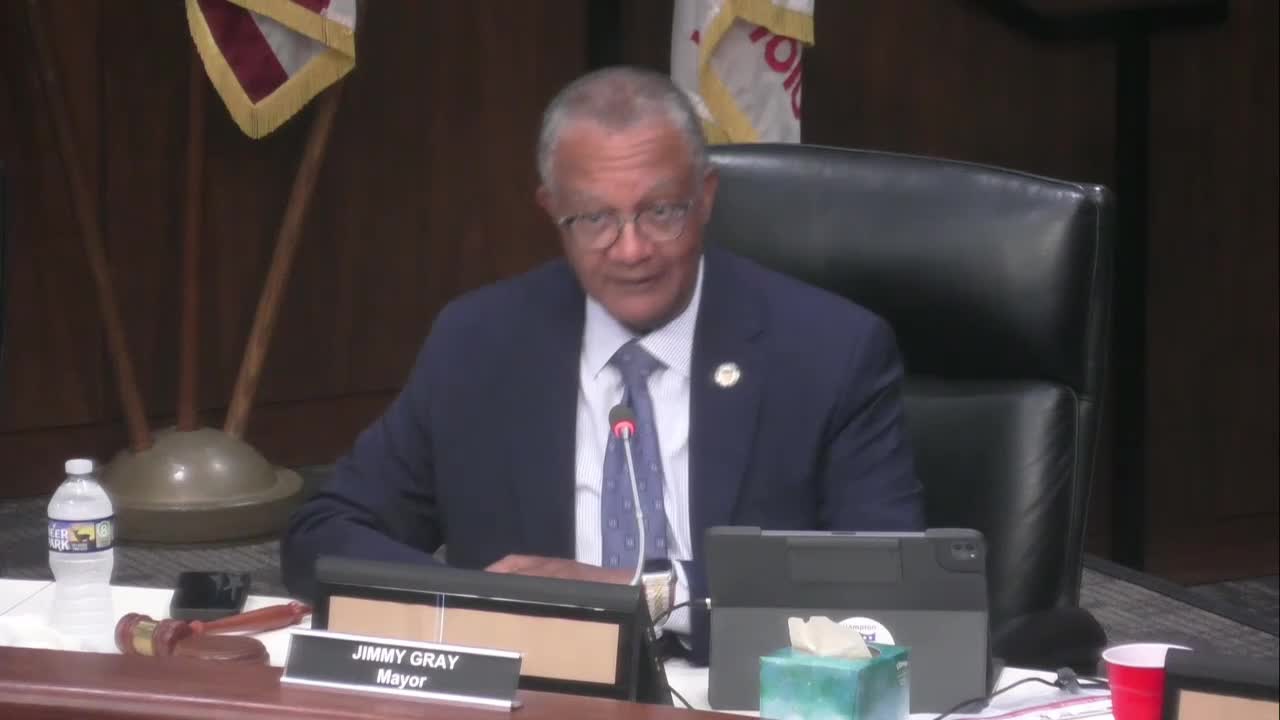Article not found
This article is no longer available. But don't worry—we've gathered other articles that discuss the same topic.

City manager: new supplemental revenue and school reimbursements avert planned budget cuts; council offered 4% wage increase

Hampton expands downtown patrols and explores tougher rules for late‑night venues after recent homicides

City attorney proposes anti‑camping ordinance after Supreme Court ruling; council asks for enforcement policy details

